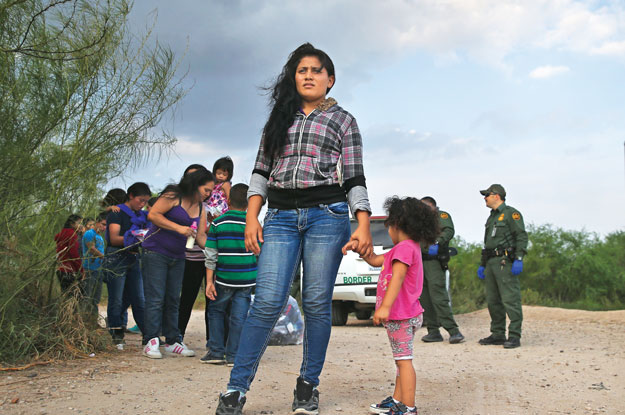In the new issue of Americas Quarterly, we asked people, “What would you tell the next U.S. president about Latin America?” To see other authors’ responses, click here.
Dear Mister / Madam President,
Judging from the rhetoric coming from both parties’ presidential campaigns, immigration will continue to be a hotly contested issue under the next administration. Regardless of who takes office, you should use your executive powers to address the crisis currently facing recent arrivals from the Northern Triangle region of Honduras, Guatemala and El Salvador.
You should recognize that the tens of thousands of Central Americans who have attempted — and are still attempting — to cross the border each year are fleeing for their lives, and should be treated accordingly. You should also acknowledge that undocumented Northern Triangle immigrants already living in the U.S. face a possible death sentence if deported.
Under the (Barack) Obama administration, immigrant communities have faced a paradox: a president who is committed publicly to passing immigration reform that provides a path to citizenship for undocumented immigrants, while at the same time deporting over 2.5 million of them. Obama took executive actions to protect immigrants, but also created new enforcement policies that, while supposedly targeting criminals, continue to separate immigrant families.
Those fleeing Central America are not just numbers on a graph, but real people. Take, for example, Manuel Burgos, a 17-year-old who fled the persistent threats and recruitment efforts of opposing gangs in his native El Salvador. Manuel sought refuge with his parents in the Bronx, New York. His cousin was unable to flee, and gangs killed him two months later. Manuel’s asylum application is currently under review and he could be sent home. For him, and thousands more, deportation would likely mean death.
Julio Acosta, a 50-year-old from El Salvador who fled the civil war in the 1980s, has been living as an undocumented immigrant in the U.S. for over three decades. However, because of nonviolent offenses dating back a dozen years, he now faces deportation, which would not only separate him from his wife and three U.S.-citizen children — who depend on him for their financial, emotional and psychological well-being — but also place his life at risk.
Addressing the plight of Manuel and others fleeing one of the most violent regions of the world should be a priority. It requires a multipronged approach. First, you should provide Temporary Protected Status (TPS) for all migrants fleeing the Northern Triangle. They clearly meet the conditions that qualify them for TPS, foremost among them the fact that their governments are unable to protect their citizens from violence. The next administration has clear executive authority to make this happen.
You should also protect people like Julio, who is ineligible for TPS due to convictions from over a dozen years ago, despite having turned his life around. Until Congress fixes our out-of-date immigration system through reform legislation, you should declare a moratorium on the Priority Enforcement Program and the devastating raids associated with it, which terrorize and tear apart immigrant families.
You should end family detention, which occurs at three sites nationwide. Holding parents and their children in detention is morally dubious, and a federal court has ruled against it. In Pennsylvania, the license of the Berks County Detention Center was revoked after advocacy groups, including Make the Road Pennsylvania and the Shut Down Berks Coalition, called attention to the risks faced by detainees there, such as sexual assault and exposure to infectious disease. Nevertheless, when AQ went to print, Immigration and Customs Enforcement had yet to close the center.
You should also eliminate the visa cap being imposed by United States Citizenship and Immigration Services (USCIS) on young people from the Northern Triangle who are eligible for relief through Special Immigrant Juveniles (SIJ) status. SIJ visas, which help abused, abandoned or neglected immigrant children, have always been immediately available, because of the priority of protecting vulnerable youth. But USCIS has now told advocates that youth from these countries will need to wait longer, possibly years, on the grounds of a quota having been met. Such delays will compromise these young people’s ability to settle into their new communities, qualify for financial aid, and pursue their education.
Our country has a long history of protecting those fleeing violence, and we are at our best when we protect those who are most vulnerable — especially families in need. The immigrant rights movement will push hard to make this happen, and we hope that you will embrace this ethos as well.
—
Valdés is the co-executive director of Make the Road New York, the largest grassroots community organization in New York offering services and organizing the immigrant community. Follow their work: @maketheroadny @javierhvaldes





